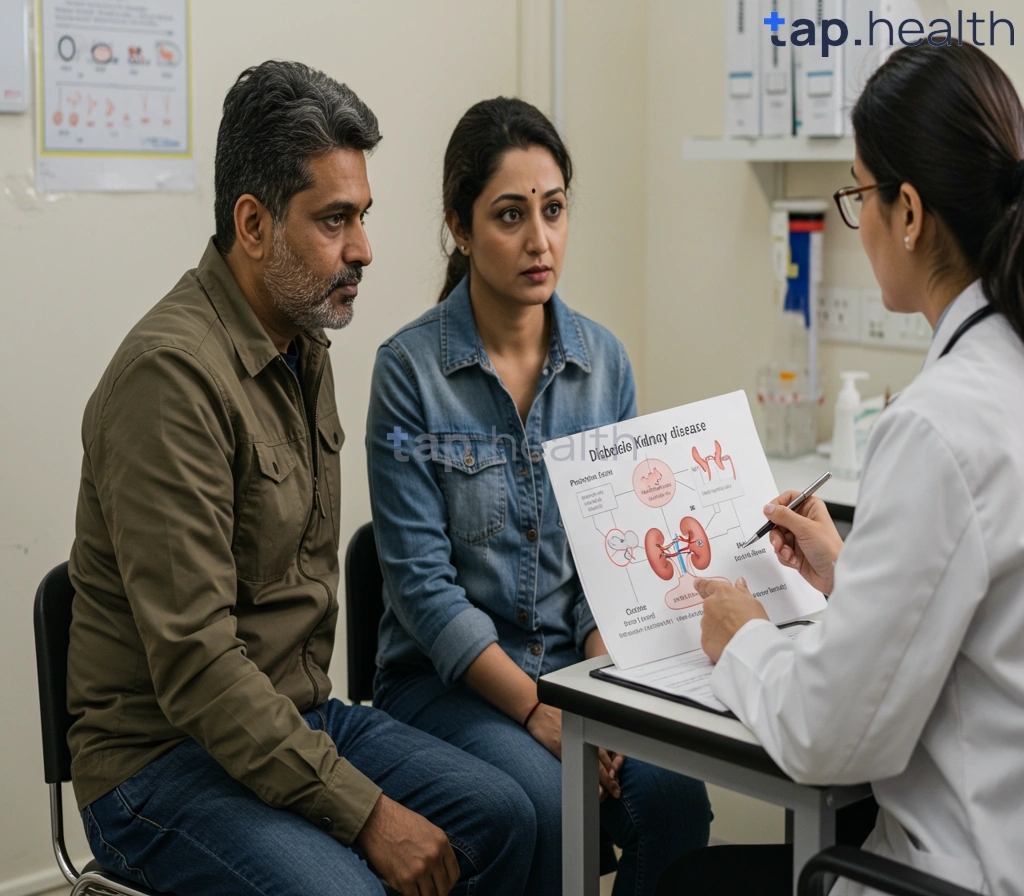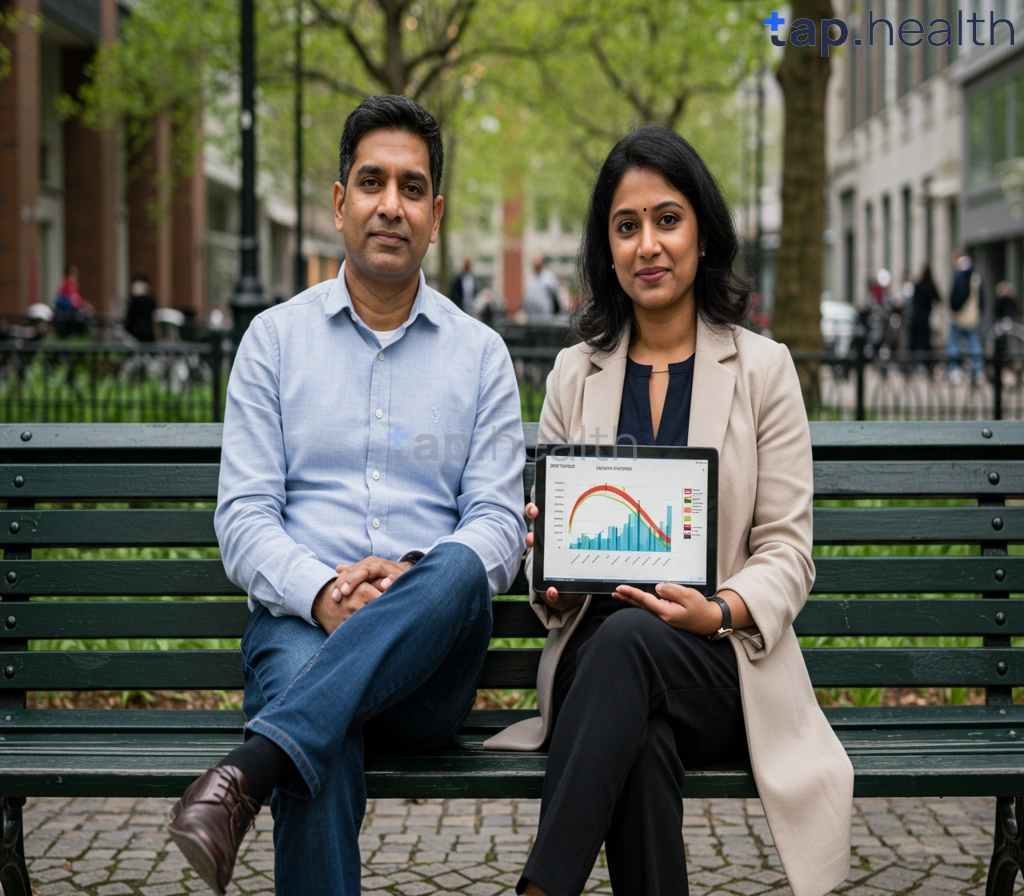Table of Contents
- Diabetes and Secondhand Smoke: Protecting Your Heart Health
- How Secondhand Smoke Impacts Blood Sugar and Heart Health in Diabetics
- Secondhand Smoke, Cardiovascular Disease, and Diabetes: A Comprehensive Guide
- Is Secondhand Smoke Increasing Your Diabetes Risks? Find Out Now
- Tips to Reduce Secondhand Smoke Exposure for Diabetes Patients
- Frequently Asked Questions
- References
We all know that smoking is incredibly harmful, but did you know that even secondhand smoke poses a significant threat, especially if you have diabetes? This blog post dives into the critical connection between Diabetes & Secondhand Smoke: Protecting Your Heart. We’ll explore how exposure to secondhand smoke increases your risk of heart complications if you’re living with diabetes, and most importantly, we’ll provide practical steps you can take to minimize your exposure and safeguard your health. Understanding these risks is the first step towards a healthier, happier life. Let’s get started!
Diabetes and Secondhand Smoke: Protecting Your Heart Health
Did you know that smokers with diabetes face a staggering double the mortality rate from cardiovascular issues compared to those without diabetes? This alarming statistic highlights the critical interplay between diabetes, smoking, and heart health, particularly relevant in densely populated Indian and tropical countries where exposure to secondhand smoke is prevalent. The increased risk stems from the combined damaging effects of these factors on blood vessels and the heart.
Understanding the Risk
Diabetes already puts significant strain on your cardiovascular system. High blood sugar levels damage blood vessels, increasing the risk of heart disease, stroke, and peripheral artery disease. Secondhand smoke exacerbates this damage, further impairing blood vessel function and increasing inflammation throughout the body. This heightened inflammation contributes to the development and progression of atherosclerosis, a condition characterized by plaque buildup in the arteries, leading to blockages and heart attacks. In tropical climates, with often higher humidity and air pollution levels, the impact of secondhand smoke can be even more significant.
Protecting Yourself
Taking proactive steps to minimize your exposure to secondhand smoke is crucial for protecting your heart health if you have diabetes. In India and other tropical countries, this might involve advocating for smoke-free public spaces and homes, choosing to spend time in well-ventilated areas, and educating family and friends about the dangers of secondhand smoke. The importance of regular check-ups with your doctor, including monitoring blood sugar levels, blood pressure, and cholesterol, cannot be overstated. A healthy lifestyle—including a balanced diet, regular exercise, and stress management—further supports cardiovascular health. For more specific strategies on protecting your heart, you might find Protect Your Heart from Diabetes: 5 Essential Steps helpful.
Taking Charge
By understanding the risks and actively working to reduce your exposure to secondhand smoke, you can significantly improve your chances of maintaining a healthy heart. Remember, your health is your greatest asset; protect it diligently. Talk to your doctor about strategies to reduce your risk and maintain optimal cardiovascular health. Prioritize your well-being today; your future self will thank you. While this article focuses on secondhand smoke, the impact of other substances should also be considered. For instance, you may want to learn more about the effects of cannabis use by reading Can You Smoke Weed with Type 2 Diabetes?
How Secondhand Smoke Impacts Blood Sugar and Heart Health in Diabetics
Secondhand smoke is a significant threat, especially for individuals with diabetes. Its impact extends beyond respiratory issues, directly affecting blood sugar control and increasing the risk of cardiovascular complications prevalent in tropical and Indian climates. Studies show a strong correlation between exposure to secondhand smoke and elevated blood sugar levels. This is particularly concerning given that high blood sugar is already a major risk factor for heart disease, stroke, and other complications common in diabetic populations across India and other tropical regions. The added stress from environmental toxins like secondhand smoke can further destabilize blood sugar regulation.
Understanding the Connection
The harmful effects of secondhand smoke are multifaceted. It contributes to inflammation throughout the body, impacting the efficiency of insulin, a hormone crucial for regulating blood glucose. This impaired insulin function leads to higher blood sugar levels, increasing the risk of long-term diabetic complications like retinopathy, nephropathy, and neuropathy. Furthermore, secondhand smoke damages blood vessels, leading to atherosclerosis (hardening of the arteries), a primary contributor to heart disease. This risk is significantly amplified in individuals with diabetes, who already have a heightened susceptibility to cardiovascular issues. The daily consumption of sugary beverages, a common occurrence in many regions, further raises the risk of diabetes by 26%, as research indicates. This alarming statistic underscores the need for preventative measures. Maintaining healthy Blood Sugar Levels is crucial for managing diabetes effectively.
Protecting Your Heart
Protecting yourself from the harmful effects of secondhand smoke is crucial for managing diabetes and maintaining cardiovascular health. In densely populated areas of India and tropical countries, avoiding exposure can be challenging. However, strategies such as spending time in well-ventilated spaces, requesting smoke-free environments, and advocating for smoke-free public places can significantly reduce exposure. Prioritizing a healthy lifestyle, including regular exercise and a balanced diet low in sugary drinks, is equally important in mitigating the risks associated with diabetes and secondhand smoke. Taking proactive steps today can safeguard your heart health for years to come. Simple lifestyle changes can significantly improve diabetes management and overall well-being.
Secondhand Smoke, Cardiovascular Disease, and Diabetes: A Comprehensive Guide
Exposure to secondhand smoke significantly elevates the risk of cardiovascular disease, a serious concern for individuals with diabetes. This is especially critical in densely populated Indian and tropical countries where exposure is often high. People with diabetes already face a heightened risk of heart problems, and secondhand smoke acts as a potent accelerant. The damage isn’t just theoretical; studies have repeatedly shown a clear link between passive smoking and increased cardiovascular complications in diabetic patients.
Understanding the Risks
Secondhand smoke contains numerous toxins that damage blood vessels, increasing blood pressure and contributing to the formation of blood clots. For individuals with diabetes, these effects are amplified. Existing vascular damage from diabetes is worsened, leading to an increased likelihood of heart attacks, strokes, and peripheral artery disease. This is particularly worrying given that up to 80% of Type 2 diabetes cases can be delayed or prevented through lifestyle changes; lifestyle changes that demonstrably exclude exposure to secondhand smoke. Understanding the complexities of cardiovascular health is crucial, and it’s important to note that conditions like Asthma can also have significant cardiovascular implications.
Protecting Your Heart
Protecting yourself from the dangers of secondhand smoke is crucial for managing diabetes and maintaining cardiovascular health. In India and other tropical countries, this might involve actively seeking smoke-free environments, advocating for smoke-free public spaces, and educating family and friends about the risks. Simple steps like avoiding crowded, smoky areas, particularly during festivals or social gatherings, can make a significant difference. Prioritizing a healthy lifestyle, including regular exercise and a balanced diet, further reduces the impact of existing risk factors. Regular check-ups with your doctor are also essential for early detection and management of any cardiovascular complications. Remember that even seemingly small lifestyle choices, such as moderating alcohol consumption, can play a significant role in overall well-being.
Taking Action
Prioritizing your health and actively avoiding secondhand smoke is a powerful step towards preventing serious cardiovascular complications. In the context of India and other tropical regions, community awareness and advocacy play a crucial role. Let’s work together to create healthier environments for everyone, especially those living with diabetes.
Is Secondhand Smoke Increasing Your Diabetes Risks? Find Out Now
Living in densely populated areas of India and other tropical countries presents unique challenges, especially for those managing diabetes. While genetics and lifestyle play a significant role, environmental factors like air pollution and secondhand smoke can significantly impact diabetes management and increase health risks. A staggering 61% of people with diabetes are aged between 20-64 years, a crucial working age group, according to the International Diabetes Federation’s Diabetes Atlas. This highlights the urgent need to address preventable risk factors.
Secondhand Smoke: A Silent Killer
Secondhand smoke is a major concern, especially in regions where indoor air quality is often poor and social gatherings frequently involve smoking. Exposure to secondhand smoke increases inflammation in the body, potentially damaging blood vessels and contributing to insulin resistance – a key factor in developing type 2 diabetes. This risk is amplified for individuals already battling the disease, potentially leading to more severe complications like cardiovascular disease. Understanding the Type 2 Diabetes: Symptoms, Causes and Treatment – Tap Health is crucial in mitigating these risks.
Protecting Your Heart and Your Health
For those in India and tropical countries with diabetes, avoiding secondhand smoke is crucial. This means advocating for smoke-free public spaces and homes, and actively choosing environments that prioritize clean air. Encourage family and friends to quit smoking. For those aged 20-64, representing the largest demographic of diabetes sufferers, preventive measures are particularly vital to maintain long-term health. Making informed dietary choices, such as understanding whether foods like sweet corn are beneficial, can also contribute to better management. Consider reading more on Is Sweet Corn Good for Type 2 Diabetes?
Taking Action Today
Protecting yourself from secondhand smoke is a simple yet powerful step towards better diabetes management and heart health. Start by identifying and limiting your exposure to smoky environments. Discuss your concerns with your doctor or healthcare provider to develop a comprehensive diabetes management plan tailored to your region and lifestyle. Your health is an investment worth protecting.
Tips to Reduce Secondhand Smoke Exposure for Diabetes Patients
Exposure to secondhand smoke significantly increases the risk of cardiovascular complications for individuals with diabetes, a concern particularly relevant in densely populated areas common across India and other tropical countries. Since Type 2 diabetes constitutes 90% of all diabetes cases in India, protecting this large population from the added burden of secondhand smoke is crucial. The research highlights the synergistic effect of diabetes and smoking, leading to heightened risks of heart disease.
Protecting Yourself from Secondhand Smoke
Minimizing your exposure to secondhand smoke requires proactive steps. Firstly, avoid crowded, poorly ventilated indoor spaces, especially where smoking is permitted, such as certain restaurants, tea stalls, or even family gatherings. Secondly, advocate for smoke-free zones within your community. In India, many public spaces are still not strictly smoke-free; actively promoting smoke-free policies in your local area can create a healthier environment for everyone, particularly those with diabetes. This could involve engaging with local authorities or community leaders.
Creating a Smoke-Free Home
Thirdly, ensure your home is a smoke-free environment. This means requesting that visitors refrain from smoking indoors and politely but firmly establishing this as a house rule. If you live with a smoker, encourage them to quit or at least restrict smoking to designated outdoor areas, well away from windows and ventilation systems. Regularly airing out your home can also help dissipate lingering smoke particles. Remember that managing your diabetes effectively is crucial for your overall health, and avoiding secondhand smoke is a key part of that. For more information on preventing long-term complications, check out our guide on How to Prevent Long-Term Complications of Diabetes: Easy Tips.
Seeking Support and Resources
Finally, seek support if needed. Many organizations in India offer resources and support for smoking cessation. These resources can benefit both individuals with diabetes who smoke and their families, creating a more supportive environment for maintaining a smoke-free lifestyle and reducing the risk of heart complications. Your proactive steps will significantly improve your cardiovascular health. For additional tips on managing your diabetes, you might find our article on 10 Proven Tips for Effective Diabetes Management helpful.
Frequently Asked Questions on Diabetes & Secondhand Smoke: Protecting Your Heart
Q1. How does secondhand smoke increase cardiovascular risk for diabetics?
Secondhand smoke contains toxins that cause inflammation and damage blood vessels. Diabetics already have increased vascular damage, so the combination significantly raises their risk of heart attacks and strokes.
Q2. What are the benefits of reducing exposure to secondhand smoke?
Minimizing exposure significantly lowers your risk of cardiovascular complications. This is crucial for diabetics who are already at higher risk.
Q3. What can I do to protect myself from secondhand smoke?
Advocate for smoke-free environments, choose well-ventilated areas, and encourage smokers to quit. These steps will reduce your exposure.
Q4. Besides avoiding secondhand smoke, what else can I do to protect my cardiovascular health if I have diabetes?
Maintain a healthy lifestyle with a balanced diet, regular exercise, stress management, and regular check-ups with your doctor.
Q5. Why is this issue particularly important in densely populated Indian and tropical areas?
These regions have a high prevalence of diabetes among working-age adults, making the population especially vulnerable to the combined risks of diabetes and secondhand smoke exposure.
References
- A Practical Guide to Integrated Type 2 Diabetes Care: https://www.hse.ie/eng/services/list/2/primarycare/east-coast-diabetes-service/management-of-type-2-diabetes/diabetes-and-pregnancy/icgp-guide-to-integrated-type-2.pdf
- What is Diabetes: https://www.medschool.lsuhsc.edu/genetics/docs/DIABETES.pdf



